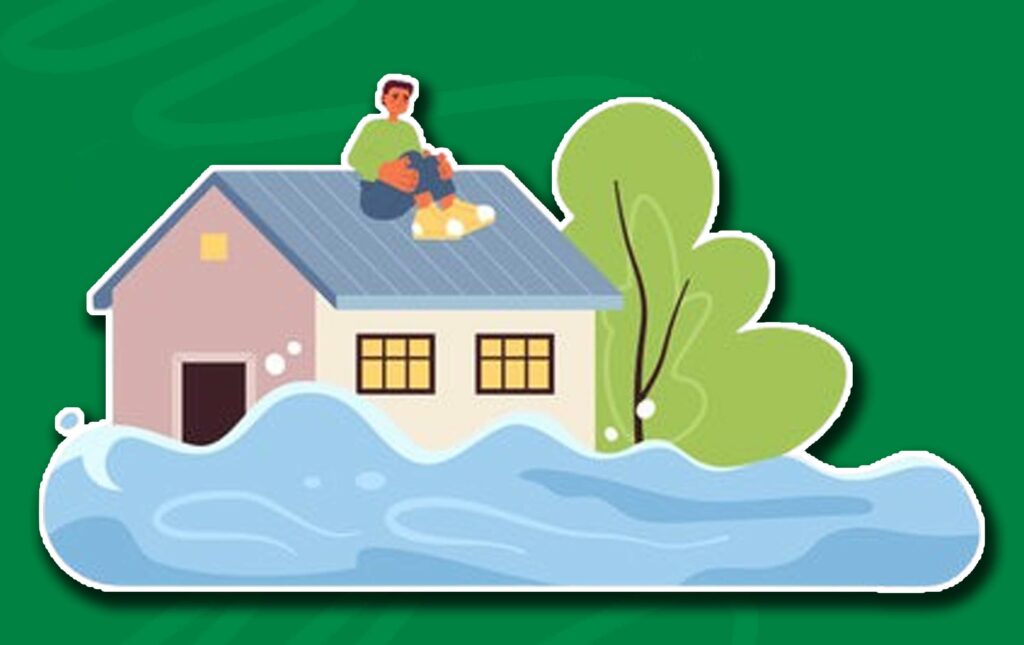As a renter, can I get flood insurance? Yes, you can. Floods are unforeseen disasters that can cause a lot of damage to you and your rented apartment. And it can be a huge financial burden to people without the perfect coverage. Although renters do have good liability coverage from the best renters insurance company, those plans may not offer coverage for flood.

Renters should not just assume that flood insurance is made just for homeowners. As they can easily purchase flood insurance and protect their rented home. Read on to the very end to know why renters should consider a flood insurance policy to ensure that they get all the needed help if their rental floods.
Does My Renters Insurance Cover Flooding?
Renters insurance typically covers damage from events like theft, fire, and vandalism, but they do not necessarily cover floods.Although the policy might cover water damage from something like a burst pipe, generally it won’t help if the flooding comes from outside, like heavy rain or a rising river.
In order to protect your personal belongings from flood damage, you’d need to purchase a separate flood insurance policy. This would help cover things like furniture, clothing, and appliances. However, you will need to keep in mind that the repairs to the building itself, such as fixing walls or carpets, would be the landlord’s responsibility through their own homeowners and flood insurance.
As a Renter, do I need Flood Insurance?
Renters can typically purchase flood insurance for several reasons. If you rent near water, in a rainy area, or somewhere prone to hurricanes, getting flood insurance is such a good idea. Even areas that are not known for flooding can experience unexpected incidents. And according to the National Flood Insurance Program (NFIP), 40% of flood claims do come from these low-risk areas.
Also, your landlord’s insurance may not be able to provide enough coverage for all your belongings adequately. Landlords usually have insurance to protect their property, but it may not cover your own personal items fully. So, having your own flood insurance could be very essential to make sure everything is protected and your mind is rest assured.
How to Get Flood Insurance for Renters
Have you decided to purchase the flooding policy? The following is how renters can easily get flood insurance:
· Check with your current insurance: Meet with your renters insurance company and ask if they offer flood coverage as an add-on. Get a quote to see how the coverage can easily affect your premium and deductible.
- Shop around: If you decide to purchase a new policy, contact several insurance companies for quotes. Ensure that you do research about coverage limits, policy terms, and any exclusions. For example, find out if rain damage after a window breaks in a storm can be covered by the policy.
- Understand the waiting period: Know if there’s a waiting period before the policy kicks in, which is always around 30 days (one month).
- Ask about payouts: Clarify how payouts work to ensure you get the maximum cash value for damaged items. Think about what it would cost to replace your belongings after a flood.
Based on the report from NFIP data from September 2022, 40% of standalone flood insurance policies cost $1,000 or less per year. Just so you know, you can save money by combining standalone flood insurance with a budget-friendly renter’s insurance plan.
The Bottom Line
In summary, renters should consider purchasing flood insurance to fully protect their belongings. Your standard renters insurance covers some emergencies and events. However, it usually doesn’t cover flood damage or additional living expenses if you decide to have to move out because of flooding.
Flooding can cause significant damage, so having extra protection for your valuables is a smart choice. You can always rest assured that your rented home and properties are protected even if flooding occurs.
Meet with your insurance provider or agent today to know more about the flooding insurance coverage for your rental. You should ask about how much coverage you need, the deductible, and how your renters premium can be affected. Ensure that you do adequate research before purchasing the policy.



